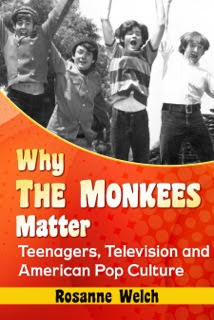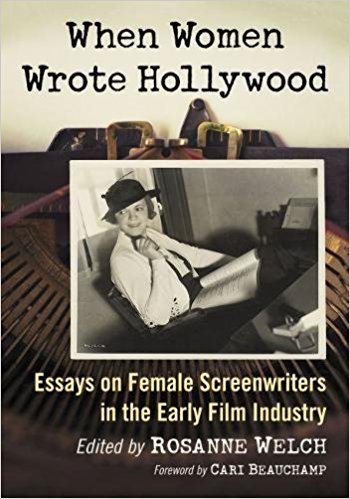Find more of my photos on Instagram | PixelFed
More from my Instagram Feed
On Screenwriting and Media with Dr. Rosanne Welch
Writing, Film, Television and More!
The surname DeMille (or de Mille) brings up thoughts of the famous line from Billy Wilder and Raymond Chandler’s Sunset Boulevard “Mr. de Mille, I’m ready for my close up” which references silent screen director Cecil. Perhaps people remember his brother, William, who started as a playwright and became a Hollywood director and joined 3rd wife Clara Beranger in founding the film school at the University of Southern California. And sometimes the surname conjures of memories of Tony Award-winning choreographer Agnes de Mille (daughter of William/granddaughter of Beatrice). From now on it should bring up the writer, producer and mentor who worked frequently in both Broadway and Hollywood – Beatrice DeMille. (From here on out we will call her Beatrice to avoid confusion).
Read Writer, Producer, Agent, and Mentor (And Mom to the DeMille Boys)
Read about more women from early Hollywood
Podcast: Play in new window | Download
Subscribe: RSS
Save 35% on McFarland Books – One of My Publishers is offering a 35% Discount on Their Catalog This Week!
Along with your other holiday shopping over this Thanksgiving weekend, I’m happy to pass along this lovely discount from McFarland Publishing, the fine folks who published two of my favorite books:
Why The Monkees Matter: Teenagers, Television and American Pop Culture

AND
When Women Wrote Hollywood: Essays on Female Screenwriters in the Early Film Industry

Direct from the McFarland site, From now through December 2, they are offering a full 35% off ALL of their titles with coupon code HOLIDAY24 at checkout.
See the entire McFarland Catalog
You can buy one of my books — or any other cool pop culture book you find — for yourself or anyone else on your gift list this year.
Happy Holidays!
I always say I could talk about The Monkees all day – or at least for an hour, which is what I just had the privilege of doing with Joe Russo of The Monkees Pad on YouTube.
It’s especially fun to talk with folks like Joe, who know The Monkees so well – both the music and the TV show, which is more my specialty. We covered how the show got on the air (thanks to a young Grant Tinker), how so many of their counter-culture jokes made it past the censor, and why the fandom keeps growing across the generations.
If you love The Monkees individually or as a group, and if you love the TV of the 1960s, I hope you enjoy the listen.
Get Why The Monkees Matter” Today!
Available in Print and Kindle Versions
Podcast: Play in new window | Download
Subscribe: RSS
Since there’s been so much talk this week about mothers being proud of their highly accomplished children it’s a wonderful week to share the link to the latest Writers Guild Foundation panel co-sponsored by the Stephens College MFA in TV and Screenwriting covering the topic of “Writing Females in Leadership Roles”.
Moderated by our Executive Director Dr. Rosanne Welch the panel includes three writers from shows that celebrate female leaders from the real-life 23-year-old Miep Gies who hid Anne Frank’s family to real-life First Ladies Eleanor Roosevelt, Michelle Obama, and Betty Ford to the fictional female leaders of Station 19. Many thanks to Joan Rater (A Small Light), Zora Bikangaga (The First Lady), and especially to our Stephens College MFA alum Alexandra Fernandez (Station 19) for joining us to discuss everything from our childhood role models of female leadership (mostly moms and aunties) to the traits we expect to see in our leaders, to the nuts and bolts of working in a television writers room.
One of the benefits of the merger between our first publisher – ABC-Clio – and Bloomsbury Publishing is that Bloomsbury is a larger, more international company with more reach. What that means for my co-writer, Peg Lamphier and me is that our book, The Civil War on Film, will be available in paperback with a $26.95 price tag (much more accessible than the hardback version that is $63) on August 22, 2024.
So if you’ve always wanted to read what Peg and I have to say about which Civil War films are the most honestly historical (spoiler alert – it’s Glory) now’s your time to buy a copy! We were so pleased to include chapters on such great films as Friendly Persuasion (1957); Gettysburg (1993); Gangs of New York (2002); Lincoln (2012); and Free State of Jones (2016)
As they move forward they plan to release American Women’s History on Film in paperback as well so stay tuned!
If you haven’t yet watched Derry Girls you have to – This trailer to the first season shows the brilliance of creator Lisa McGee, who wrote ALL 3 seasons worth of episodes herself (much like Susan Harris wrote many of her early season shows herself to cement the tone and style).
I don’t always agree with the idea of no writers room – writers rooms have a deeply important purpose – but in this case, her story was SOOOO distinctly of Derry, not even merely of Ireland but completely from her own home town and her own time period as a teen in that town, that I understand. In essence, she wrote an 20 hour movie broken up into 3 seasons of 8 half hour episodes apiece.
So like a loooong film, what the trailer can’t yet show is the wonderful arcs of each of these young women who by the Season 3 series finale (not a spoiler alert since I’m not telling you what they decide) must decide how to vote on the Good Friday Agreement.
In 2022 the New Yorker had this great interview with McGee:
The house where Lisa McGee grew up, in Derry, in Northern Ireland, sits on the bank of the River Foyle, near a largely Catholic neighborhood known as the Bogside. In 1969, the Bogside was the site of a three-day conflict. Residents hurled projectiles and petrol bombs; they were met with tear gas and batons. The violence spread to other cities and towns, and ultimately resulted in hundreds of injuries and a number of deaths. British troops were called in to Derry—the beginning of a long-term military operation. The conflict, known as the Battle of the Bogside, marked what many would call the start of the Troubles, which dominated Northern Irish politics for roughly three decades. In 1972, violence flared in the Bogside again. More than a dozen civilians were killed by soldiers in a massacre known as Bloody Sunday.
Tidbits with great points for writers (aspiring and published/produced because writers are always learning) include:
Write what you’re afraid of writing: “ “I had said my whole life, ‘I’ll never write about the Troubles,’ ” she told me. “Everything I saw about the Troubles was either the news, or something quite shit that was going on in my actual life.” In films about the period, she didn’t recognize the people. “There were never any jokes. I don’t know any Northern Irish person that isn’t funny,” she said. Lewin, who had been listening to McGee tell stories about her childhood for years, persuaded her to try. “They’re so joyful,” she said.”
AND
Create writerly habits: “She often carries a notebook. “If somebody says something funny, she’ll write it down,” Mallon said. “She might even ask you again, ‘What was that? What did you say?’ She wants to get it right, word for word.” Mallon told me that McGee once heard his father say something about his car—“It stinks of fish in here!”—and borrowed the line years later in “Derry Girls.”
While the show is comical to anyone who has any experience in a Catholic school –that background isn’t required. We all understand coming-of-age and coming-to-love-our-heritage and teenagers and parents dealing with each other.
But on top of all that viewers outside of Ireland learn about the history of another country and its political turmoil and hear some great discussions about peace and how we’re all a lot more similar than we are different. And that’s what art can do.